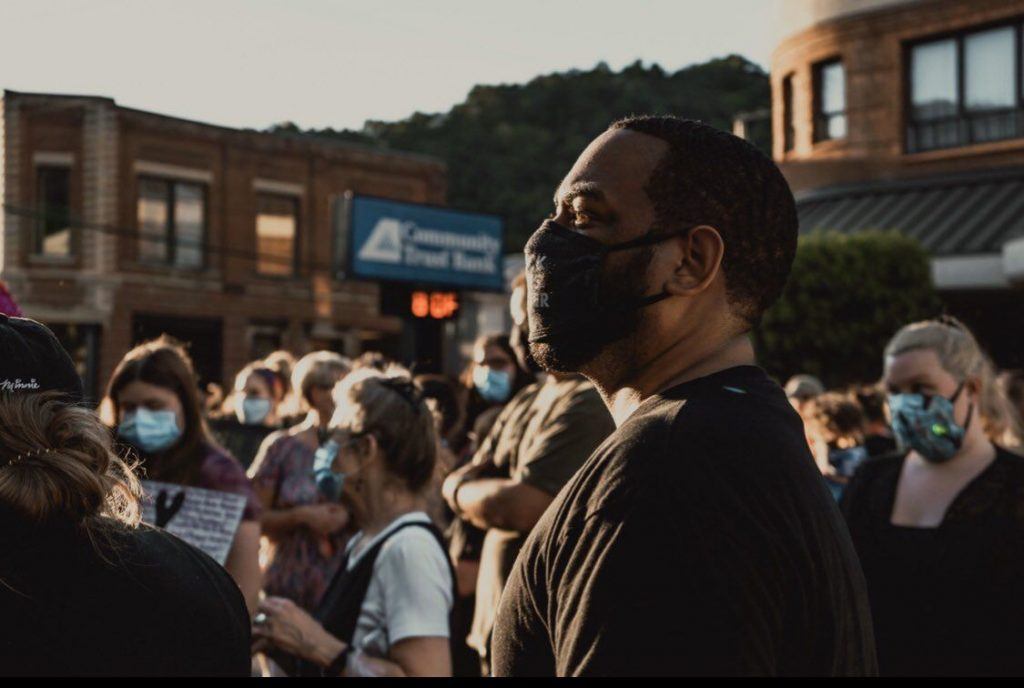Surprising Kentucky Democratic Senate Primary Attracts Traders on PredictIt
Posted on: June 22, 2020, 06:29h.
Last updated on: June 22, 2020, 06:30h.
Kentucky voters go to the polls Tuesday for the state’s primary election, and many across the country will be watching for results on the race to pick the Democratic Party’s US Senate candidate. That includes scores of traders on PredictIt, where the suddenly competitive race between former fighter pilot Amy McGrath and state Rep. Charles Booker has become one of its top trading opportunities.

In less than two weeks’ time, more than 210,000 shares have been traded on the race at the political online trading market that’s legal across the US. Only two other primary races, US Rep. Alexandria Ocasio-Cortez’s Democratic primary in New York, and the Alabama Republican US Senate primary, have generated more trades, and both of those races have been on the board for several months. The Kentucky race has become so big that PredictIt started a second market predicting the margin of victory in the race on Friday.
On Monday evening, McGrath’s shares were trading at 60 cents, with Booker’s at 44 cents. On June 9, when trading started, McGrath shares went for 83 cents to Booker’s at 16. But Booker’s shares gradually moved up in trading, with his stock going for as high as 57 cents on Thursday after polls showed him leading. However, concerns – perhaps unsubstantiated – about reduced polling locations possibly dampening turnout have since flipped trading back in McGrath’s favor.
At PredictIt, those who pick the winning side earn $1 per share, although people are allowed to trade their shares at any point before the market closes.
So, why is this race attracting attention? In more ways than one, it’s about the timing.
Demonstrations Give Booker Platform
The Kentucky race has captured attention in large part because of the nightly demonstrations that have taken place after the death of George Floyd in Minneapolis on Memorial Day. Floyd’s death by police also reignited cries for justice for Breonna Taylor, a Black woman shot to death in her apartment when police tried to execute a no-knock warrant. Taylor’s death on March 13 took place just as the COVID-19 crisis was keeping Americans in their homes.
Booker, who is Black, maintained a visible presence at demonstrations in Louisville, as McGrath stayed away. While he had already earned endorsements from many of his colleagues in Frankfort, the protests help give him national exposure, leading to endorsements from such officials as Rep. Ocasio-Cortez, US Sen. Bernie Sanders (I-VT) and US Sen. Elizabeth Warren (D-MA).
And Booker has taken that momentum and parlayed it into a growing following. He’s attracted crowds at rallies across the state, even in places like Corbin, a rural Eastern Kentucky community that’s 97.4 percent White.
We have so much in common. We are fighting so many of the same battles that if we stand together, all of us, all Kentuckians, no matter where you’re from, no matter what you look like, no matter what pronouns you use, whether you’re walking or are in a wheelchair, how much money you have in your pocket, whether your skin looks like mine or not, you matter,” Booker said in Corbin Sunday. “From the hood to the holler… this is about Kentucky.”
In the final day of campaigning, both Booker and McGrath made multiple campaign stops across eastern Kentucky. Political pundits all agree Booker has the momentum. Some, though, think it may be too little, too late, against an opponent that entered the race with higher name recognition and access to millions in campaign funds.
Gaffes Hurt McGrath
Kentucky typically holds its primary elections in May. But the COVID-19 crisis forced state leaders to push it back a month. In a normal election year with a May primary, McGrath, recruited by Democratic leaders in the Senate to challenge Majority Leader Mitch McConnell (R-KY), likely wins handily, thanks to the millions in contributions she received, funds which she’s used to pepper the airwaves statewide with commercials.
Even with the national support, McGrath did little to engender confidence among Kentucky’s Democratic voters. Last July, she told The (Louisville) Courier-Journal that she could work with President Trump and not block some of his ideas.
She also flip-flopped on whether she would have supported the appointment of Brett Kavanaugh to the Supreme Court. In 2018, when she lost a Congressional race in Kentucky, she opposed the nomination. But in the same CJ interview, she said she “probably would have voted for him.”
Hours later, she recanted that statement.
While Kentucky is overwhelmingly a Trump state and the President does appeal to some conservative Democrats in Kentucky, the primary election is limited to just party members, and those comments rankled the more progressive voters living in Louisville and Lexington, the state’s two largest cities and Democratic strongholds.
In the year since McGrath’s gaffes have continued. Most recently, after Warren endorsed Booker, she issued a statement seeking to cast herself as the outsider.
“I am proud to have support from real Kentuckians across the commonwealth. And I am certain they will decide for themselves who to vote for on Tuesday. They don’t need senators from other states telling them what to do,” said the candidate recruited and endorsed by the Democratic Senatorial Campaign Committee.
Primary Plan Boosts Absentee Voting, Raises Concerns
While the primary is Tuesday, hundreds of thousands of votes have already been cast across the state. That’s as part of an unprecedented mail-in and absentee voting program put together by Gov. Andy Beshear, the state’s Democratic chief executive, and Michael Adams, its Republican secretary of state.
According to Josh Douglas, an election law professor at the University of Kentucky, more than 220,000 of the more than 600,000 registered voters in Louisville have requested a mail-in ballot or took part in early voting, which wraps up Monday. He noted on Twitter that figure already exceeds the most recent high-water mark for primary voting in the city, which was 192,630 in 2008.
The plan is not without its drawbacks. Louisville has more than 600 precincts, yet all voting Tuesday will take place at one location, the state’s fairgrounds. That was done in order to reduce the number of poll workers, many of whom are elderly, but it raised concerns of long lines or suppressed votes. Election officials, noting the high number of absentee requests, have expressed confidence that the long lines that have been seen in places like Georgia and Wisconsin won’t happen in Louisville Tuesday.
With a significant number of ballots coming in through the mail, election officials in some of Kentucky’s 120 counties have said they will not post results until next week. For mail-in ballots to count, they must be postmarked by Tuesday and into the county election office by Saturday.
What that means for PredictIt traders is an extra week of trading, as some counties will not report their totals until June 30. And that doesn’t take into account any time needed for a recount or recanvass.
McConnell Heavy Favorite in November
The winner from Tuesday’s primary will move on to the November general election, where they will face McConnell, who also has a primary Tuesday, but only faces token opposition. Regardless of who wins the Democratic nomination, PredictIt traders think they will have a daunting challenge against the well-funded and powerful Majority Leader.
Currently, shares for the Republican candidate to win are trading at 80 cents, while the Democratic shares are at 21 cents.
Related News Articles
Australia Considers Regulating Online Poker as Internet Gambling Ban Takes Effect
Bernie Sanders Announces 2020 Candidacy, Joins Crowded Democratic Field
Most Popular
Tropicana Las Vegas to be Imploded, Tentative Date Set
VEGAS MYTHS BUSTED: Golden Gate is the Oldest Casino in Vegas
Most Commented
-
End of the Line for Las Vegas Monorail
— April 5, 2024 — 90 Comments
















No comments yet